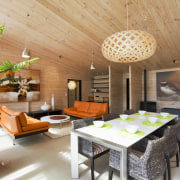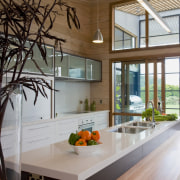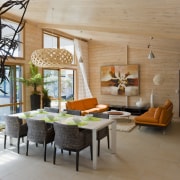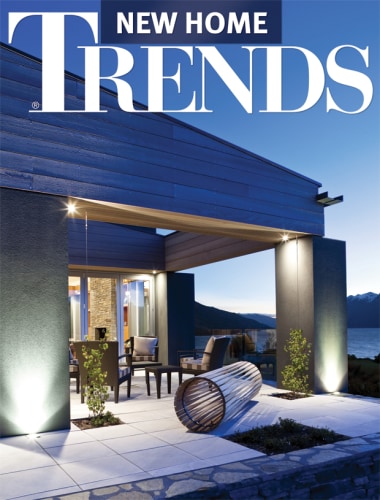Feel-good factor
From a more comfortable living environment to lower energy bills an energy-efficient home will pay dividends in more ways than one, says EECA
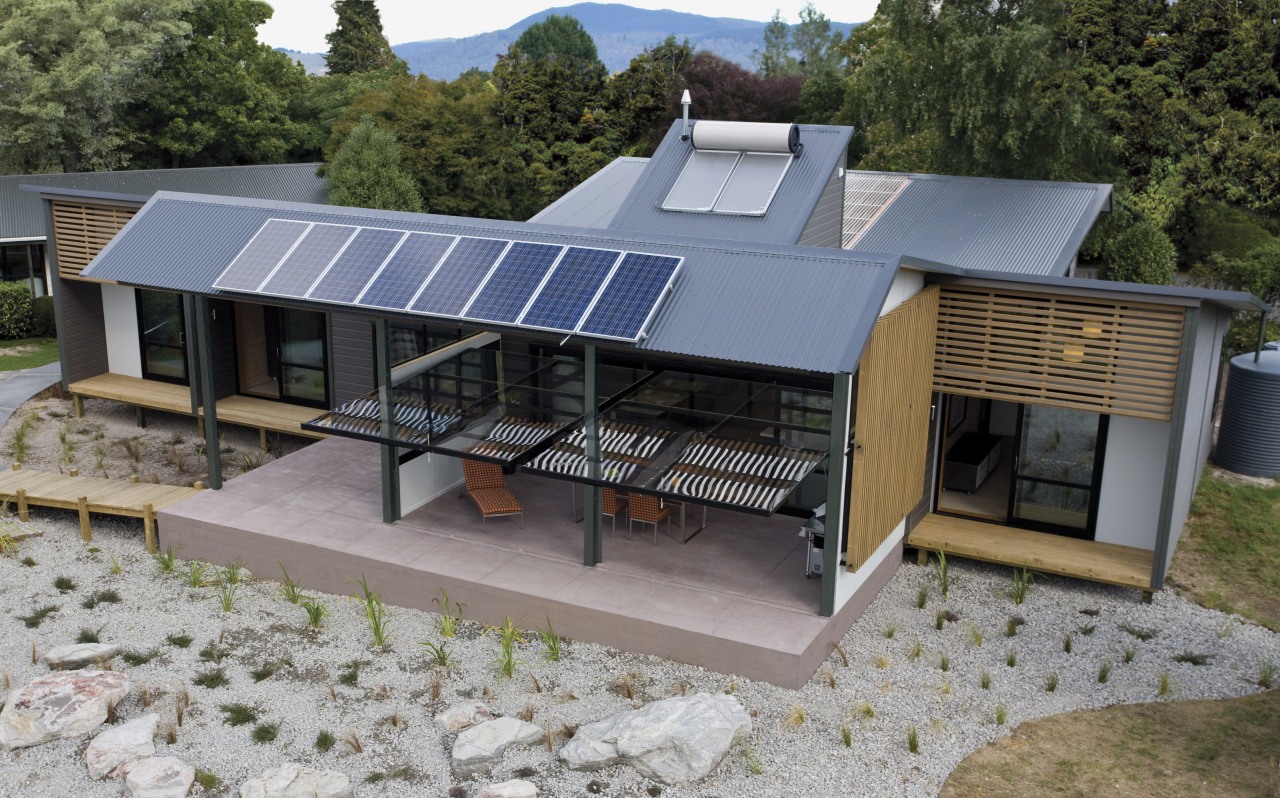
Energy-efficient design is not just a buzz phrase. The decisions you make right at the start of a new home project have a major bearing on your family's future comfort and the amount you will spend on energy bills.
To help you plan for energy efficiency, EECA (Energy Efficiency and Conservation Authority) has a number of suggestions. EECA spokesman Robert Tromop says taking advantage of passive heating from the sun is the first consideration for designers and homeowners.
"The sun's energy is free, clean and there's plenty of it, so it makes sense to make the most of it in our homes," he says. "This energy source is vastly under utilised in most New Zealand homes."
Tromop says passive heating starts with site selection. Choosing a building site that allows you to place living areas on the north-facing side of the house is vital. Living areas with larger, north-facing windows and concrete floors will be able to absorb and trap the heat in winter. Medium-sized windows are best for east- and west-facing rooms.
"Locating the garage and rooms used less often on the south side, and having smaller windows on this side helps to reduce heat loss. These rooms act as a buffer against heat loss from living areas."
Double-glazed windows, which are now standard for new homes, can cut heat loss though glazing by 50%. They also cut down external noise.
Concrete floors exposed to the sun act as a thermal mass, soaking up heat during the day and releasing this at night.
"Good insulation is also essential to retain the heat," says Tromop. "Insulation needs to be installed in the ceiling, under the floor and in the walls. Bumping up your home insulation will give you a comfortable home that doesn't cost a fortune to heat."
Tromop says rooms need to be airtight. Even well-insulated houses are hard to heat if hot air is constantly replaced with cold air. Good airtightness requires joinery and wall, floor and ceiling construction to be well sealed. This can be done with membrane systems, which are high-tech versions of building paper.
EECA also suggests you think twice about the need for standard recessed downlights, which need clearances for fire safety reasons.
"This means you have holes in the ceiling insulation through which a lot of heat can escape," says Tromop. "We recommend non-recessed fittings there are plenty of good-looking light fixtures that fit the bill."
Good, well-fitted thermal curtains also help reduce heat loss in winter.

EECA says choosing an efficient water-heating system is another way to make dramatic energy savings.
"Heat pump water heaters or solar water heating can meet about 50% of your hot water requirements, but needs to be part of an efficient hot water system, with managed water-flow showers and short, well-insulated pipe runs," says Tromop.
Undertaking a little research into home heating options is another recommendation. EECA suggests choosing an efficient heating system some heating solutions cost half as much to run as others.
"Taking the time to investigate these options will make a huge difference to your family's comfort and energy costs," says Tromop. "Energy savings in the home also have a positive flow-on effect for the environment."
For details, visit the EECA website: www.energywise.govt.nz
Story by: Trendsideas
Home kitchen bathroom commercial design
Space, light and industrial accents
The stage is set
Tall and handsome


